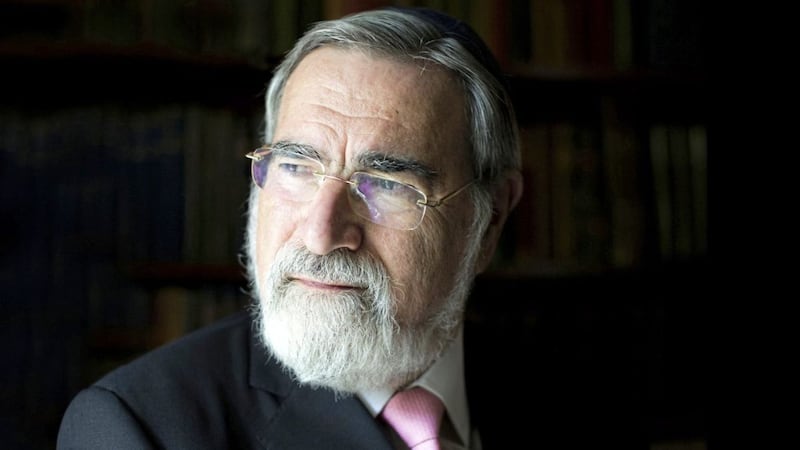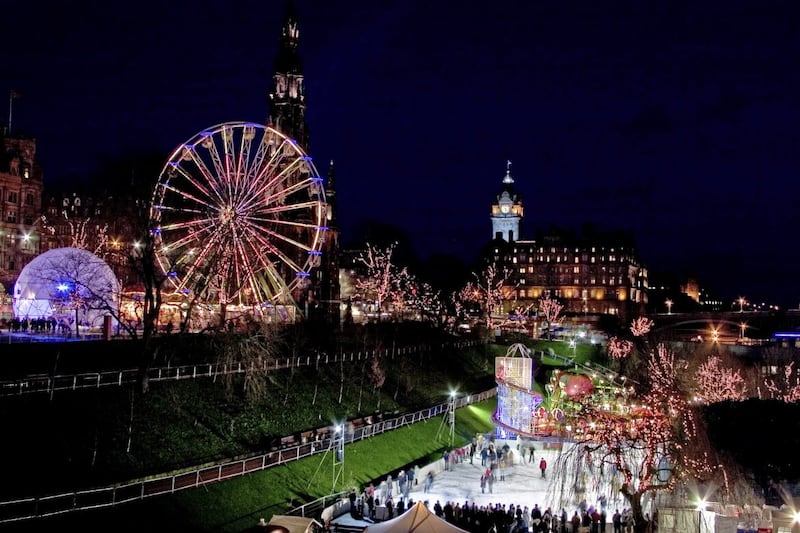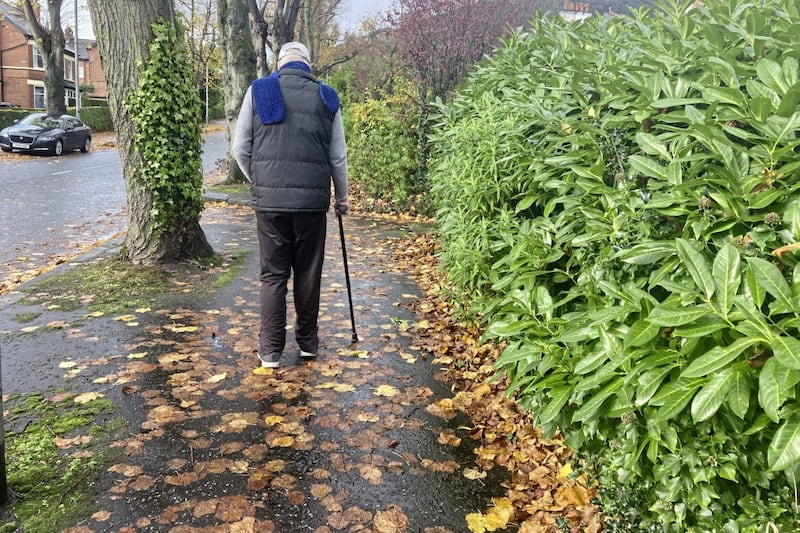EVERY January 27 people of all faiths and backgrounds gather to remember the six million Jews murdered during the Holocaust and the millions of others killed under the Nazi authorities as well as the genocides that followed in Cambodia, Rwanda, Bosnia and Darfur.
Why January 27? It marks the anniversary of the liberation of Auschwitz-Birkenau which was the largest of the concentration camps and, like the others, held what was referred to as ‘sub-humanity’. These people included political prisoners, Romani, gay and lesbian men and women, people – including children – with disabilities, Protestants and those of the Bahá?í Faith as well as people who spoke the international language Esperanto. How threatening is that?
:: As the 2021 invitation said:
"It is important that we continue to remember those who lost their lives in the Holocaust and subsequent genocides and that society learns lessons from the past to create a better future for all.
"Holocaust Memorial Day is a poignant commemoration and remains very important to all of us. This year, due to the Covid-19 pandemic, it has been decided there will not be a regional stand-alone event in Northern Ireland and the Holocaust Memorial Day Trust will hold a virtual UK-wide commemoration event online with local contributions being made to the ceremony which will be broadcast on the evening of January 27 2021."
This commemoration was a well-made programme but it lacked soul, it lacked a choir, it lacked the blowing of the Shofar.
For some reason political leaders, including Arlene Foster and Michelle O’Nell, contributed a few lines under the banner of We Shall Remember Them; people were joining from various parts of the UK, from a school in Orkney to Belleek Fire Station to Guy’s Hospital in London... it felt like filling time.
There were three survivors who were interesting but it was a disappointing memorial service to those who mattered – the six million Jews who were murdered and their families.
Two past Holocaust gatherings stand out in my mind. The very first memorial gathering, when the late Rabbi Jonathan Sacks spoke so movingly at the Waterfront Hall, was memorable as the hall was packed, a Jewish male-voice choir sang traditional songs, the lighting of a candle, the blowing of the Shofar... this service of remembrance was especially poignant.
:: 2020 Holocaust Memorial
For me the highlight of last year’s Belfast City Hall service was the address given by Fionnuala Jay O’Boyle, Lord Lieutenant of the County Borough of Belfast, and it’s worth remembering what she said.
“For the dead, as for the living, we must bear witness. There may be times when we are powerless to prevent injustice but there must never be a time when we fail to speak. The horror of Holocaust should challenge us always.”
She continued: "The opposite of love is not hate, it’s indifference. The opposite of faith is not heresy, it is indifference. The opposite of life is not death, it is most certainly indifference.”
She told us that she believes that in remembrance there is no death.
"For in our act of remembering we choose to carry with us part of the soul of those who have departed. Remembrance is the very affirmation of what has brought each of us here this evening.”
We’d do well to ponder these words and keep them in our hearts. Remembrance. It’s a beautiful word with deep meaning. It doesn’t need to be a big event, doesn’t need to be organised.
Remembrance is simple and happens all day every day when a couple of people talk about someone who has passed, perhaps in the act of taking out a photograph and thinking of that person or just out walking and thinking of someone you still love, even those who are not physically with you any more.
In the sadness that is Covid 19 remembrance will be all important in the days and weeks to come. As Fionnuala Jay O’Boyle said, in remembrance we carry part of that soul with us.
On Wednesday we were all encouraged to light a candle and place it in the window in an act of remembrance.
“In the darkness of indifference even a tiny flame can banish darkness.”
:: More at hmd.org.uk
:: Grateful thanks
John McConnell is in a prime position to comment on the NHS. At the beginning of December, he nipped a nerve in his spine and couldn’t walk. He was taken straight to the Royal Victoria Hospital where he spent eight weeks.
During this time he was told he had Covid, despite the fact that he had no symptoms, a special worry as he has a compromised immune system following a kidney transplant some years ago.
Although he tested positive he recovered sufficiently to be moved to Musgrave Park Hospital where he was safely isolated in a side room. Then started a regime of intensive physiotherapy. Now John, who is 78, is home but having house visits to maintain the planned treatment.
:: John’s request
“Anne would you please help me say thank you? I want to tell everyone about the care I received. In the Royal Dr Cullen from Fermanagh was a woman who talked to me, helping me to come to terms with my fears; she gave me confidence.
I was looked after by an international galaxy of nurses, from Nigeria, Indonesia, from Kerala in India, the Philippines, Uganda – plus all the local men and women working under a wonderful sister who ran her ward like clockwork. The Musgrave physios were excellent, all local and all patient but firm!”
John still can’t walk so he’s exercising at home with various contraptions to help him stand and take steps.
“I have such respect for all these gentle professional people working under pressure at the Royal [where there are] sometimes 20 people in a ward, so I’d be grateful if you would allow me to thank them through your page and to impress on the public that we have the best and we should appreciate them.”









